

Stainless Steel Ball valves are essential parts of many industrial operations. And so, making sure that these valves are always working properly is integral to ensure that systems don’t fail. Proper maintenance is easy — It requires small routine checkups as well as minimal labor. In turn, this can lower the chances of operational systems breaking down. Find out more about proper ball valve maintenance down below:
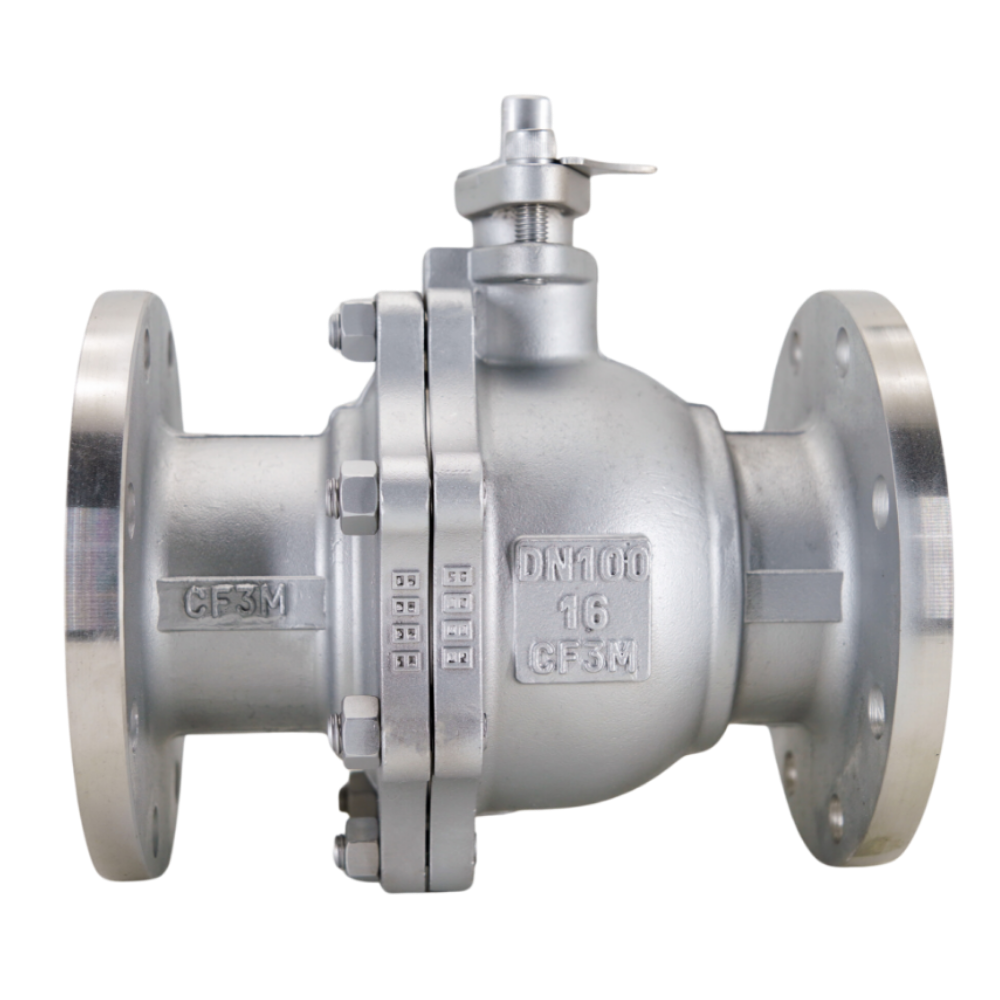
By routine Stainless Steel Ball Valves cleaning procedures, it can help make out any problems or potential issues. Once you can find out about these problems, it’s a lot easier to deal with them through preventative maintenance keeping them in use for a longer time. Not checking up on your stainless steel ball valves can increase risks of system failure.
Regular maintenance can point out potential issues, reducing the need for large scale repairs. In turn, this also prevents any dangerous ball valve leakage.
Comparatively, regular maintenance is a lot cheaper than conducting unexpected repairs. If your valves fail, it can cause large amounts of damage to the system’s integrity. In turn, this is a lot more expensive to deal with. Additionally, if valves fail, the factory will be forced to shut down all operations. This also leads to a loss of revenue.
Each stainless steel ball valve has certain manufacturer specifications which you can keep track of for valve actuator maintenance or preventative maintenance. Generally, following these can make your valves last for a long time.
The easiest way to care for stainless steel ball valves is a regular check up. Regular inspections can help point out any potential problems. Ball valves that are used in higher pressure situations should be checked more often than others that aren’t in high pressure operations.
Over time, you will need to conduct valve seat replacement maintenance. This is mostly a problem with valves utilized for high pressure situations. These operations can cause damage to the seal over time, leading to leaks or the valve falling apart. The general process to replace valve seats is as follows:
Stainless Steel Ball Valves need to be lubricated often to ensure optimal performance. Lubricating them can help ensure that valves are always easy to work with. The type of lubricant depends on the manufacturer’s specifications. Usually, oil based or water insoluble solutions work just fine.
Debris on Stainless Steel Ball Valves can lead to fluid blockages which can cause system failures. And so, ball valves need to be cleaned often to ensure the valve does not need any sort of repair. Cleaning agents can be confirmed using the manufacturer’s specifications. Ideally, valves should be cleaned around once a year. If the working conditions are generally dirtier, cleaning should be done every few months.
A common problem seen in valves is leakage. This usually happens when valves are in use for a long time without regular maintenance. Additionally, this can also be seen if valves are improperly installed. To fix this, the valve must be detached and then reinstalled. If leaks occur due to wear and tear, conduct stem packing maintenance.
Valve blockages occur due to the accumulation of debris within the valve. Regular maintenance can prevent blocked fluid flow. If the fluid flow has been blocked, you will have to detach the valve and clean it from the inside before reusing it.
Ball valves that are used in higher pressure operations are more susceptible to corrosion. Corrosion can be prevented by using resistant solutions on your valve. These solutions are determined by the fluid that’s flowing through the valves along with the environmental conditions such as pressure and temperature. If the fluid and resistant solution are incompatible, this can lead to faster rates of corrosion. Keeping valves clean also prevents corrosion.
The best way to maintain and troubleshoot stainless steel ball valves is regular maintenance. It is also useful to follow manufacturer specifications. Additionally, lubricating and cleaning the valves can also ensure they survive a long time.
You should check up on your valves regularly. However, large scale check ups can be limited to once a year. If the ball valves are used in higher pressure operations, more regular maintenance may be required.
Resources:
Ball Valve Maintenance | Tameson.com
Common Ball Valve Issues and Their Solutions – Vinco Valves
A Complete Guide To Ball Valve Problems and Troubleshooting | Dombor
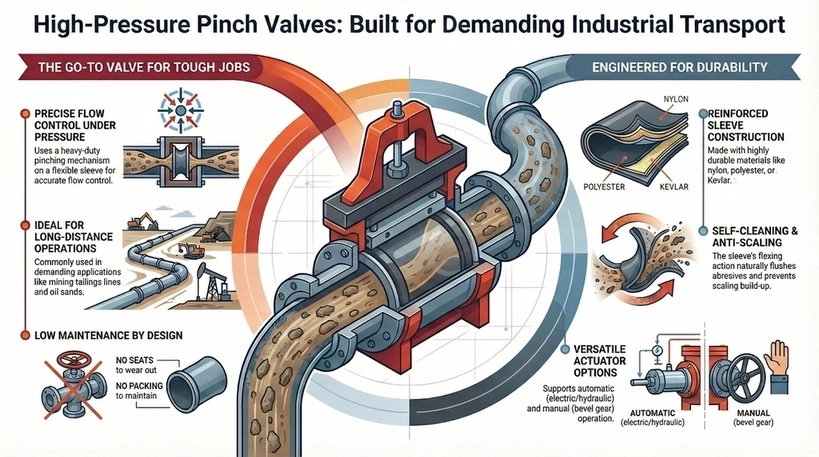
High pressure pinch valves, like PN16 pinch valve and class 150 pinch valve designs, involve a rugged and heavy-duty pinching mechanism in positioning the sleeve, resulting in an almost accurate and measurable flow of media. This kind of valve is popular and commonly used for long distance operations in mining tailings lines or oil sands, […]
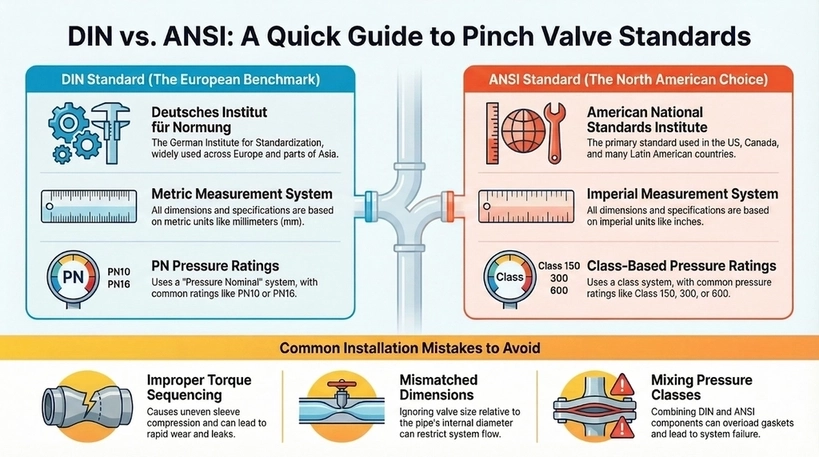
Understanding pinch valve dimensions and flanges ensures seamless integration into piping systems, particularly when choosing between DIN vs ANSI. The two are different but commonly used standards by organizations in engineering, manufacturing, and product design. DIN was developed in Germany but widely adopted across Europe and parts of Asia. Meanwhile, ANSI standards, which originate from […]
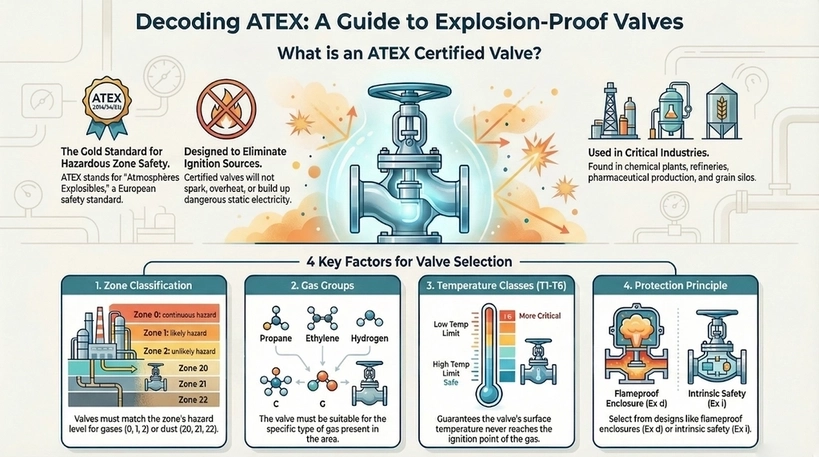
Selecting the appropriate explosion proof valve is essential for safety in industries that pose explosion risks. ATEX certified valves guarantee compliance with European standards, preventing ignition sources from heat, sparks, or static electricity. This blog explores key factors for choosing ATEX certified explosion proof valves that ensure overall operational safety, highlighting the entailed regulations and […]
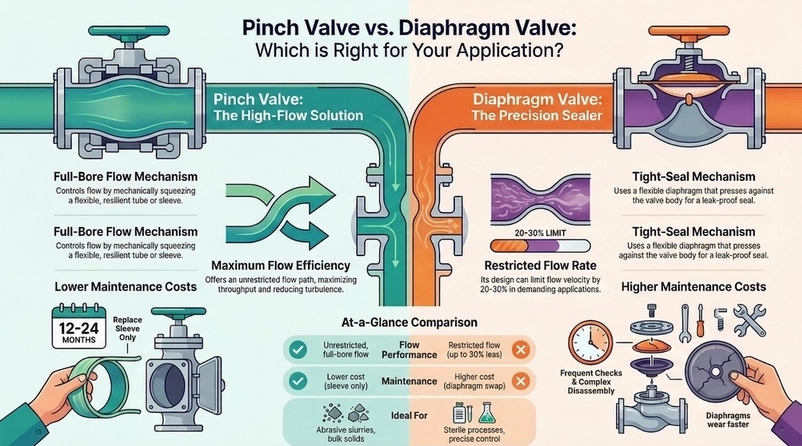
When handling abrasive or viscous media in industrial processes, the type of valve used can heavily affect the performance, efficiency, and overall user experience. In relation to this, two of the most common valve options are pinch and diaphragm valves. In this blog, we delve into the pinch valve vs diaphragm valve discussion, analyzing flow […]



